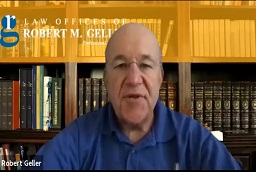
Stacy Caprio
Table of Contents
Research the Volume of Keyword Searches on Monthly Basis
One rule of thumb when doing keyword research for a PPC campaign is to always research the volume of searches a keyword gets per month. You can use the Google Keyword Planner to get this type of stat, and filter out keywords that get less than 20 searches a month. This helps you focus your efforts on keywords that will get a bit of search volume, so your account isn’t cluttered with ad groups and keywords that have little to no volume.
Use Research Keyword Tool to Your Advantage
Based on several years of PPC experience within ad agencies, start with the usual keyword planning tools, but also listen to your gut. The Google Ads Keyword Planner and Semrush keyword tools are fantastic, but they can fail when researching niche topics with low search volume. It’s advisable to use these tools as a starting point, then put yourself in the shoes of your customer, conduct your own Google searches, and check out the “people also ask” and “related searches” sections of the SERP to expand your keyword list.
You can also draw a lot of great insights from your previous PPC campaigns. While recent updates to the Google Ads search terms report mean you have less visibility into what people were searching for when they found your ad, there’s a helpful workaround to be found in Google Analytics. Navigate to Acquisition > Google Ads > Search Queries and you’ll find a much bigger list of the searches people made.
From here, you can uncover some fantastic untapped keyword opportunities.

Eloise West

Cale Loken
Add Negative Keywords
I believe that one of the most important rules of thumb is adding negative keywords to your keyword list. This is extremely important for your PPC campaign as it doesn’t make your ads appear for irrelevant searches with almost similar keywords or key phrases, and doesn’t make your ads irrelevant for customers. The best way to add the negative keywords is to research them and keep a close eye on the reports of your PPC campaigns. It will educate you about the keywords that are performing well and the ones that need negative keywords against them. This strategy has proved to be very effective in improving the performance of the PPC campaigns, and you can’t overlook its importance.
Start Broad and Narrow it Down
When you’re coming up with keywords for a PPC campaign, the general rule of thumb is to start broad and narrow it down from there. This means you’ll use the most general terms for the product or service you’re attempting to advertise. Let’s say you’re advertising car parts. You might start with terms like “Toyota parts” and “Toyota engine.” Then you can narrow it down as the customer gets more specific. “2017 Toyota Corolla engine.” That’s a customer who knows what they’re looking for and is ready to price shop and buy.
Imagine what your ideal customer is searching for and all the different ways they might pose their query. People write search queries in ways that are different from how they’d speak. The key to getting a diverse range of keywords is to include variations and related terms to corner low-cost keywords. After that, it’s time to do some research. You can do this for free with the Adwords tool, but it is also recommended to use actual software to help you see how popular a keyword is with your customers and your competitors.

Dan Bailey

William Cannon
Essentials in Choosing the Right Keyword
Keyword research is the cornerstone of every PPC campaign. That is why choosing the right words and taking into account some major essentials is necessary for clicks and sure conversions.

Need Google Ads Management Help?
Free Google Ads account review for
qualified clients
Almost 20 years experience
Keep these things in mind when doing keyword research for PPC:
- Start with broad keywords and narrow down to specific ones later on
- Use relatable synonyms and variations, also known as LSI (Latent Semantic Indexing) keywords
- Use misspelled variation (creative bump!)
- Choose keywords that your targeted audience may use the most
Match the Keywords with the Customer’s Journey
When you’re coming up with keywords for a PPC campaign, the general rule of thumb is to match it to the customer journey. Consider what you want each campaign to achieve and who it should target. Customers will have different needs and will produce different search queries the further along they are in the customer’s journey.
If you’re targeting somewhere at the beginning of the funnel or the awareness stage, you might use “laptop computer” as a keyword. If you’re targeting them at the consideration stage, they might be narrowing down their search to “budget laptop.” And if they’re at the bottom of the funnel and ready to make a decision, they might specifically be looking for a “school laptop under $400.”
Adding in price points can be helpful for customers who are further along in the customer journey. This also narrows your keywords, allowing you to bid on keyword strings that have lower competition.

Rex Freiberger

Hamna Amjad
5 Tried and Tested Tips on Doing Keyword Research
Focus on picking the right keywords that are relevant and specific. You want to target the right audience who would convert and would like to buy from you rather than some random clicks from people who are not interested in your products.
Use an online tool such as Google’s Keyword Planner to figure out the best keywords. The two parameters that you should focus on are search volume and competition. The goal is to figure out the sweet spot i.e., high-volume, low-competition keywords that will drive substantial traffic without costing you a fortune.
Use “long-tail” keywords as these are less competitive and more specific, to keep yourself within your budget limit. “Conversion rates are 2.5 times higher for long-tail keywords than forehead keywords.”
Don’t forget negative keywords as they are equally important. You can avoid appearing in irrelevant searches and save yourself from getting irrelevant clicks. For instance, if you are offering a paid service, you can add “free” as a negative keyword to your campaign. Your ad won’t show up on any search containing the term “free.”
Organize your PPC keywords into small, targeted groups of keywords that are highly relevant to each other. Higher relevance means higher Quality Scores, simultaneously increasing your ad rankings, and reducing cost for each click.
[source: http://bit.ly/2WTcFLx ]
Determine Which Type of Keyword Groups You Need
Perhaps the most important thing is to determine your goals before you get started with your campaigns so you can know which type of keywords to use. There are different keyword groups, such as branded, transactional, long-tail, locational, and more. Depending on your goals, you’ll choose a different keyword for your PPC campaigns. Those are the two first steps that we take every time we launch a new campaign.

Petra Odak
Hariraj Rathod
Understand Seasonality Patterns
Brainstorming on keyword research and understanding seasonality patterns helps to efficiently rotate the ads.
This is a crowdsourced article. Contributors are not necessarily affiliated with this website and their statements do not necessarily reflect the opinion of this website, other people, businesses, or other contributors.



















